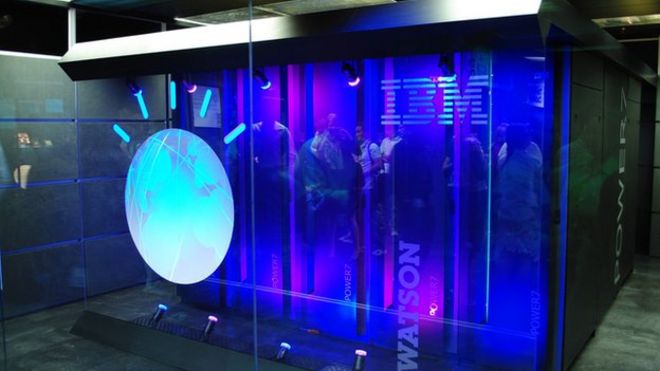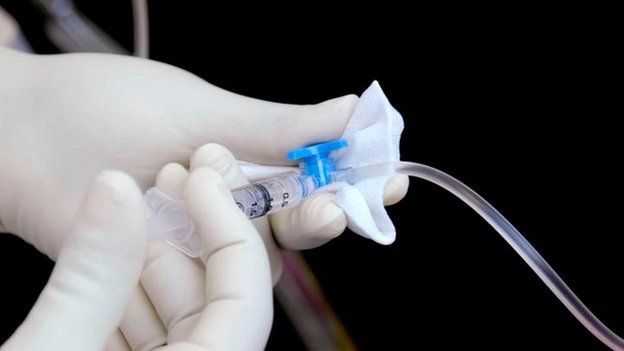|
Originally published by the BBC on 6 May 2015.
IBM's supercomputer Watson will be used to make decisions about cancer care in 14 hospitals in the US and Canada, it has been announced. The system will help assess individual tumours and suggest which drug should be used to target them. Doctors have welcomed the new computer which will learn from each case it examines. "When you are dealing with cancer, it is always a race," said Dr Lukas Wartman, assistant director of cancer genomics at the McDonnell Genome Institute at Washington University in St. Louis, one of those signed up to use the Watson system. "As a cancer patient myself, I know how important genomic information can be. "Unfortunately, translating cancer-sequencing results into potential treatment options often takes weeks with a team of experts to study just one patient's tumour and provide results to guide treatment decisions. Watson appears to help dramatically reduce that timeline," he explained.
Pressing issue
Most people currently diagnosed with cancer will receive surgery, chemotherapy or radiation treatment. But as genetic sequencing becomes increasingly accessible and affordable, some patients are starting to benefit from treatments that target their specific cancer-causing genetic mutations. However the process is very time-consuming - a single patient's genome represents more than 100 gigabytes of data - and this needs to be combined with other medical records, journal studies and information about clinical trials. What would take a clinician weeks to analyse can be completed by Watson in only a few minutes. "The technology that we're applying to this challenge brings the power of cognitive computing to bear on one of the most urgent and pressing issues of our time - the fight against cancer - in a way that has never before been possible," explained Steve Harvey, vice president of IBM Watson Health. According to Mr Harvey, Watson "will look for actionable targets", although he acknowledged that, "when institutions do genetic sequencing, only about half the cases come back with something actionable". Sometimes it is impossible to identify the main mutation and, in other cases, no targeted therapy currently exists. Those collaborating with IBM include the Cleveland Clinic, the Fred & Pamela Buffett Cancer Centre in Omaha and the Yale Cancer Centre. Eleven others will join the programme by the end of 2015 and each will pay an undisclosed subscription fee to IBM.
Corporate medicine
The link-up is part of an increasingly close relationship between the medical community and technology corporations. Apple revealed this week that it plans to develop apps for the iPhone that will allow users to take DNA tests which may reveal which diseases and health conditions they are likely to develop It also recently teamed up with IBM to allow the software that helps gather health data from iPhones to be used by Watson. IBM is convinced that Watson can "help change the face of healthcare" but it has even bigger ambitions for its cognitive computing platform. Speaking at an IBM event this week, the firm's chief executive Ginni Rometty made a bold prediction for the technology, saying: "in the future, every decision mankind makes, every decision, is going to be informed by a cognitive system like Watson and, as a result, our lives in this world are going to be better for it."
Full Disclosure: Joe Gaeta, President and CEO of The Joan Gaeta Lung Cancer Fund is also an employee of the IBM Corporation.
0 Comments
Your comment will be posted after it is approved.
Leave a Reply. |
Details
|




 RSS Feed
RSS Feed
